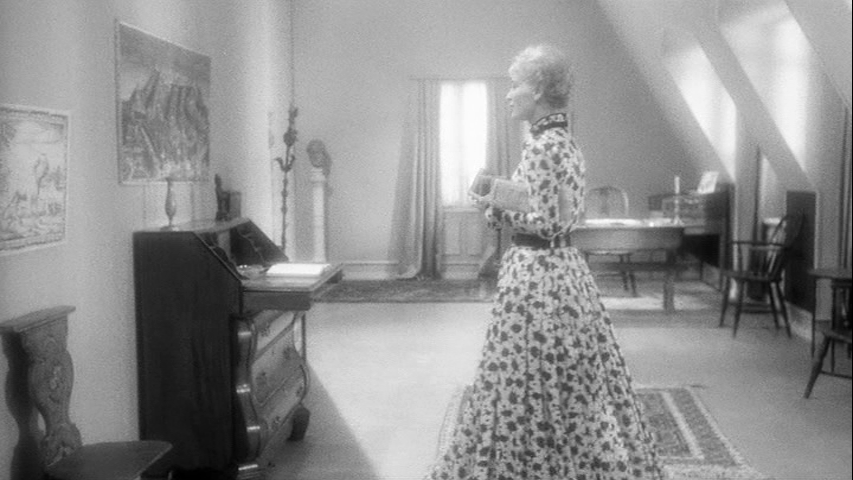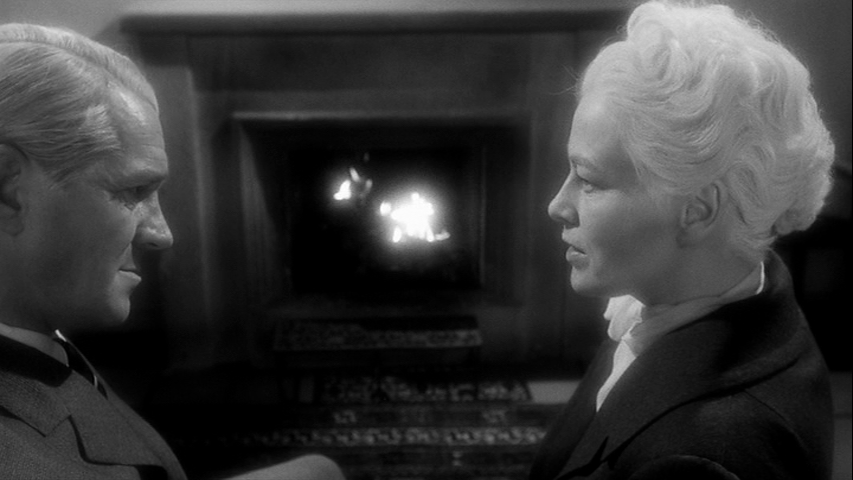From the Chicago Reader (May 27, 1988). — J.R.
Carl Dreyer’s last film, one of the most controversial movies ever made, would be my own candidate for the most beautiful, affecting, and inexhaustible of all narrative films, but it is clearly not for every taste — not, alas, even remotely. Adapted from a long-forgotten play by Hjalmar Soderberg written during the early years of this century, it centers on a proud, stubborn woman (Nina Pens Rode) who demands total commitment in love and forsakes both her husband and a former lover for a young musician who is relatively indifferent to her. It moves at an extremely slow, theatrical pace in lengthy takes recorded mainly in direct sound (although shot principally in a studio), and deserves to be ranked along with The Magnificent Ambersons, Lola Montes, and The Man Who Shot Liberty Valance as one of the great haunted memory films. In a way, the meaning of this film partially hinges on the refusal and/or inability to compromise, and what this means over the range of an entire life (in this case, Dreyer’s as well as his heroine’s). The eponymous heroine may be regarded as a monster, a sublime and saintly martyr, or, most likely, as an impossible fusion of the two. Dreyer’s film about her has a similarly dialectical and contradictory effect: it is exquisite, unbearable, and unforgettable. (Film Center, Art Institute, Columbus Drive at Jackson, Tuesday, May 31, 7:30, 443-3737)


